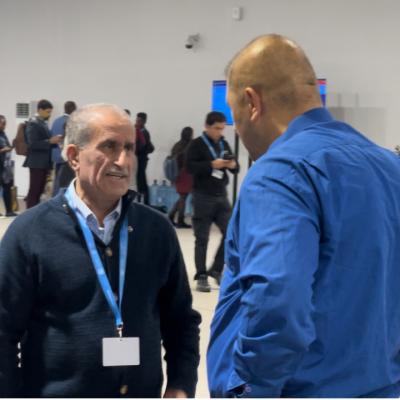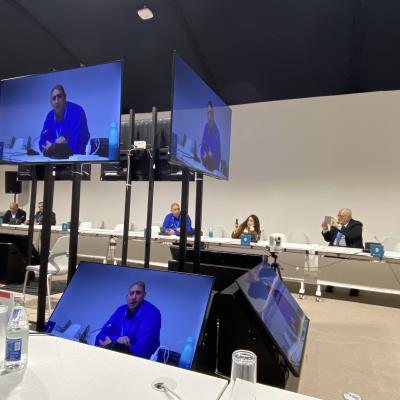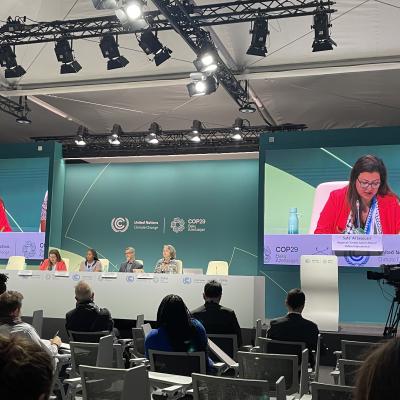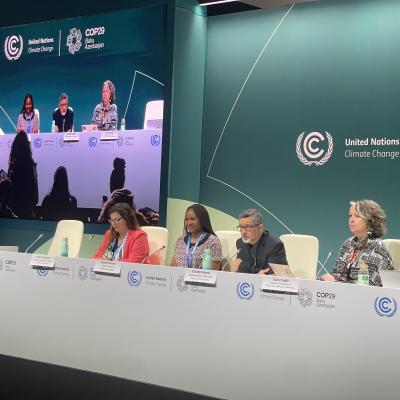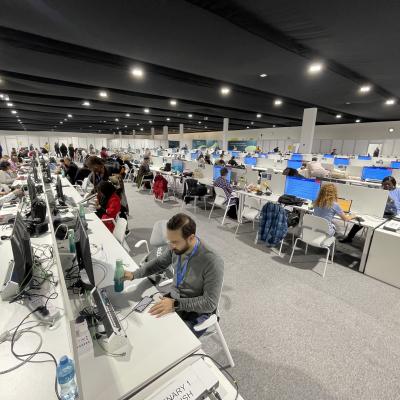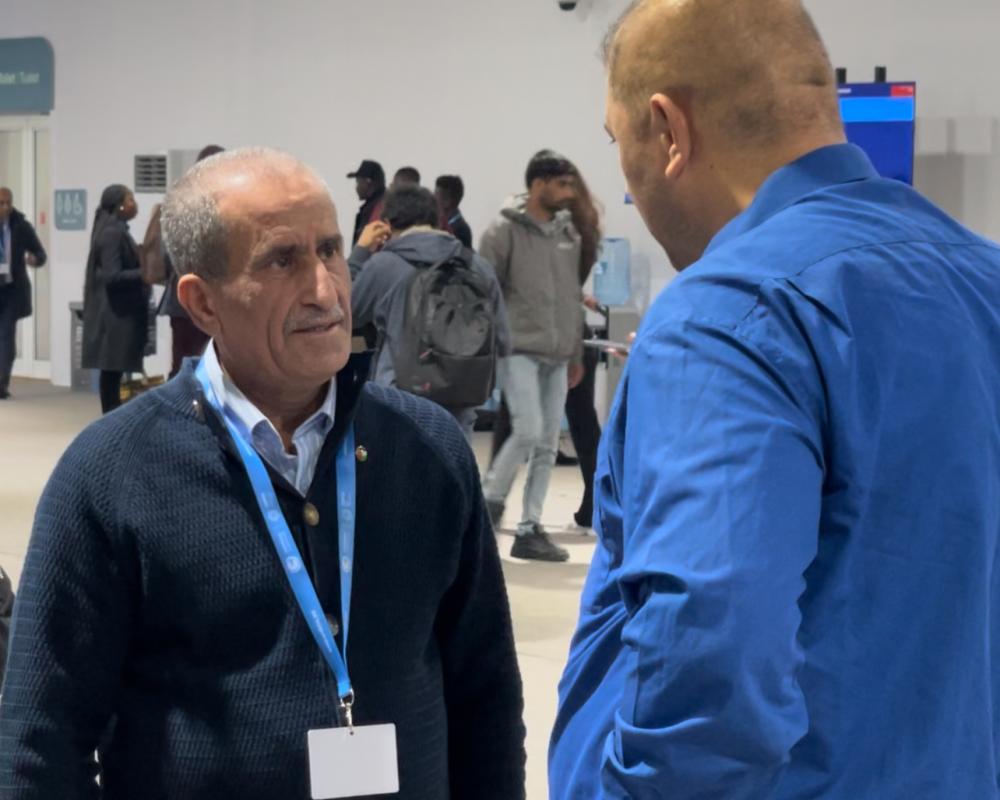
BAKU – By Munjed Jado | PNN
Palestinian experts and officials participating in the COP29 Climate Summit have highlighted significant political and technical obstacles hindering their efforts to address climate change. Chief among these challenges is the inability to secure direct funding, a restriction linked to Palestine’s political status and international mechanisms.
Palestinian Delegation Faces Political and Financial Hurdles at COP29 Climate Summit
Speaking during the summit in Azerbaijan’s capital, Palestinian delegates emphasised the devastating environmental impact of Israel’s ongoing military actions, particularly in Gaza. They also underlined the urgent need for financial support to enhance Palestine’s capacity to combat climate change effectively.

Limited Representation and Broader Goals
This year, the Palestinian delegation was notably small, comprising seven representatives from the Environment Quality Authority, the Ministries of Foreign Affairs and Energy, and international organisations working in Palestine. For the first time, the delegation included a young woman from Hebron, reflecting a broader effort to involve Palestinian youth in future climate initiatives.
Ahmed Abu Daher, Director General of Public Relations and Projects at the Palestinian Environment Quality Authority, noted that the environmental situation in Palestine was already dire before the war, with the conflict exacerbating conditions further. Reports prepared in collaboration with the UN Environment Programme (UNEP) and the World Bank detail the extensive environmental damage and its impact on Palestine’s climate.
Abu Daher estimated that addressing the damage would require resources equivalent to 30 million tonnes of CO2, a figure Palestine is striving to meet through international climate funding.
Challenges in Accessing Climate Financing
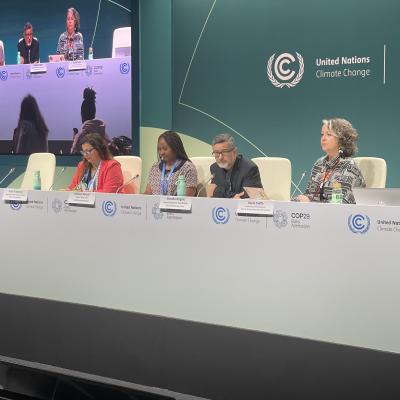
Abu Daher outlined several hurdles in accessing international funding, particularly through mechanisms like the Green Climate Fund. Due to Palestine’s inability to apply directly, funding requests must go through accredited entities like the UNDP or the World Bank. However, this process is lengthy, often taking three to four years to develop projects eligible for funding, delaying critical environmental recovery and climate adaptation efforts.
He also pointed to political barriers preventing Palestine from accessing resources from the Global Environment Facility. “These challenges are political, not technical,” Abu Daher asserted, despite Palestine’s eligibility for direct funding under international agreements.
Advocacy and International Outreach
Led by Environment Quality Authority Chairperson Nisreen Al-Tamimi, the Palestinian delegation engaged in numerous meetings with international groups, including the G77 and China, the Arab Group, and other nations. These discussions focused on funding, climate adaptation, energy transition, and resource mobilisation to support environmental and climate initiatives in Palestine.
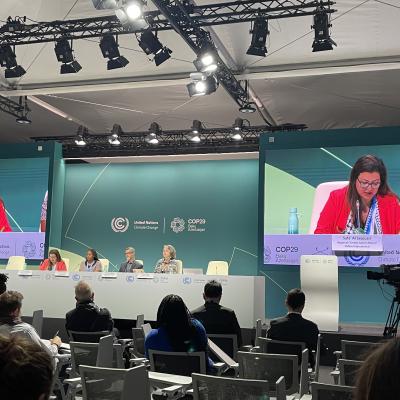
Central to the delegation’s advocacy was the call for an end to Israel’s ongoing military actions, which have had devastating consequences for both people and the environment. The delegation worked to raise awareness of the conflict’s impact on Gaza and the West Bank, focusing on three key priorities: halting the war, building Palestinian capacity to address climate challenges, and preserving the environment.
Commitment to Global Climate Agreements
Abu Daher reaffirmed Palestine’s alignment with the decisions of the G77 and China and the Arab Group, stressing their collective opposition to attempts by industrialised nations to evade their responsibilities under the Paris Agreement. “Developed countries are trying to introduce new clauses that dilute their obligations,” he said, highlighting the resistance of developing nations to such efforts.
He called on wealthy nations to fulfil their commitments under the Paris Agreement, including providing financial resources to mitigate the effects of climate change. “The industrialised countries bear the primary responsibility for climate change and must be held accountable,” Abu Daher concluded.
The Palestinian delegation’s participation at COP29 underscores its commitment to amplifying its voice on the global stage, despite significant political and financial challenges. The delegation hopes to strengthen collaborative efforts, secure vital funding, and ensure a sustainable and secure future for Palestine’s environment and people.
